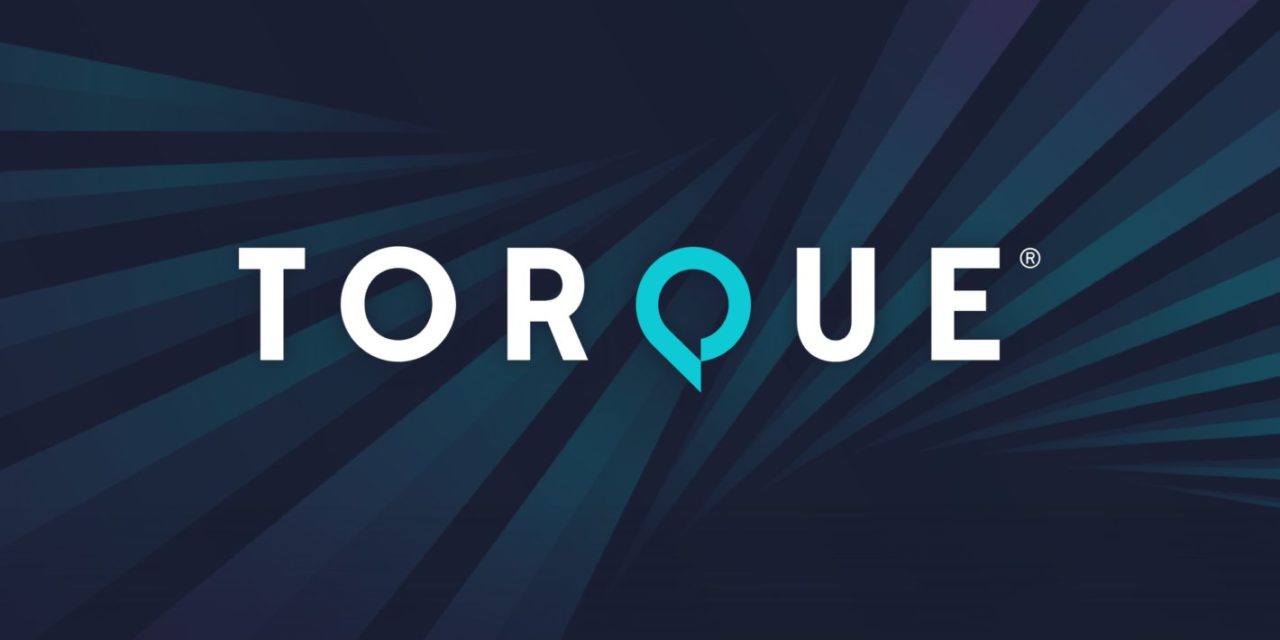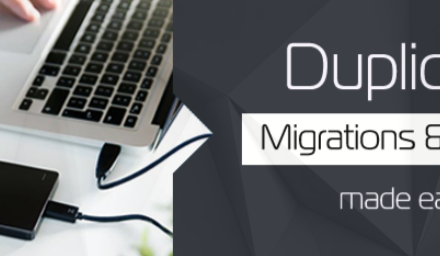Welcome to Press This, the WordPress community podcast from WMR. Here host David Vogelpohl sits down with guests from around the community to talk about the biggest issues facing WordPress developers. The following is a transcription of the original recording.
Powered by RedCircle
David Vogelpohl: Hello everyone and welcome to Press This the WordPress community podcasts on WMR. This is your host, David Vogelpohl, I support the WordPress community through my role at WP Engine, and I love to bring the best of the community to you hear every week on press this as a reminder, you can find me on Twitter @wpdavidv, or you can subscribe to press this on iTunes, iHeartRadio, Spotify, or download the latest episodes at wmr.fm. In this Press This we’re really excited to bring you how Google is helping to make WordPress Core faster. And joining us for that conversation is someone at the tip of that spear like to welcome depress this from Google Mr. Thierry Muller. Thierry, welcome.
Thierry Muller: Thanks. Thanks, David. Thanks for having me.
DV: Yeah, I’m so excited to have you here. You know, I’ve gotten to know you here and there on your various special missions and open source and WordPress over the years. Have you actually ever been on the show Thierry.
TM: I haven’t as far as I can remember.
DV: Excellent. Excellent. Well, we’re really glad to have you here and you’re joining us today from Switzerland, right?
TM: Absolutely. Zurich,
DV: fantastic. I have Zurich is on my list of places to go. I have not been yet I have a few friends from Zurich, but I’ve yet to go is definitely high on my list places. In any case. We’re here today to talk about though, is Thierry’s view really around the new feature plugin Performance Lab, which he’s working on and how it can be a pathway to making WordPress Core faster. And so, Thierry’s going to share a little bit about how these features make their way into core, what performance features they’re testing now, and what performance features they’re considering for the future and also most importantly, how you can help. Alright, Thierry, well, let’s kick it off with the questions. I’m going to ask you the same question I asked every guest and you briefly tell me your WordPress origin story. When was the first time you used WordPress?
TM: Yeah, it’s actually a good question and it’s a little bit ironic because I originally came from Joomla and the E is worthless. They was the thing which was called WordPress with Joomla. And, as its name suggests, it integrates WordPress in Joomla. Typically useful like the blog part of Joomla sites and at the time I was developing on Joomla. And, you know, as a dig deeper into WordPress, I kind of fell in love with it, and didn’t divorce it ever since, despite some typical marriage life compromises. And yeah, it was since then, I kind of moved on to WordPress and no longer developing and Joomla much and and that’s how the story started.
DV: Excellent. When was that? Do you recall roughly the year?
TM: 2008
DV: I believe. All right, good deal. So right before custom post types and meta fields. So you’re right before that revolution, do you remember that happening was that was that a big deal for you? And it rolled out?
TM: Actually, it was a big deal, because at the time I would say that WordPress was very, very blog centric. And for that specific reason, you know, it was one of the reason why I was using Joomla. And you know, when that was a huge challenge, which made you know, building more enhanced website on WordPress, possible and easier, so definitely remember these days.
DV: Yeah, I was a Drupal convert back in those days and I converted around 2010 or a little bit after that, actually ever. I was a late part of it, I guess. And it was CPTs. Ultimately, that, you know, made that more possible. I have a special place in my heart for Joomla and Drupal. I don’t I’m not one of those like versus type people. I’m like, it’s all open source. It’s all good. But that’s cool to hear about your origin story there. Would you like? So next question, could you briefly tell me about Google hahaha, and what you do there?
TM: Yeah, sure. Well, Google I, I’m sure many people will be familiar with Google. And it’s about big company is still true to its mission to organize the world’s information and make it universally accessible and useful. And, and, you know, part of this mission Google is typically broken down into various product areas. I’m sitting between a product area, which is web platform, Google Chrome, essentially and the other product area, which is Google search, and ultimately, my team’s mission is to, you know, bring web CMS or web capabilities, and CMS in general forward, ultimately, aiming to help site owners, creators, developers, and you name it to be successful on the open web and and making the open web in general continuing to strive. And that for instance, through improving performance in WordPress, considering you know the large footprint that WordPress has on the web. It’s one of like the core focus at the moment for my myself and my team.
DV: That is such an excellent read down. It’s so interesting to hear how easily the work you’re doing on the Performance Lab plugin and making WordPress faster. ladders up into Google’s original mission of organizing the world’s information and making it more accessible. Obviously, performance plays a big role in that. And the the open web plays a big role in that and of course, WordPress is a huge part of the open web. Alright, cool. Let’s get an I’m sorry. Go ahead.
TM: No, I was just saying absolutely. I mean, it’s it’s for people to get easily easy access to information. It’s very important user experience in general is very important, right, being able to serve this information so that they can fuel that consumed in a in the most optimal way possible. We can see how performance you know relates to kind of like this submission. And it’s a key part of the the open web to continue to strive.
DV: Yeah, absolutely. I definitely could see people thinking like, wow, Google care for presses faster, but it’s really kind of intricately tied to the notion of the open web site. Very interesting. Alright, well, let’s get into the plug in itself. Could you let folks know what the performance web plugin is, what its mission and what its role as a feature plugin with WordPress Core is I don’t I think some folks listening might not even know what a feature plugin is. But could you let us know a little bit about the Performance Lab plugin?
TM: Yeah, sure. Absolutely. So initially, when we when we kick started this WordPress performance initiative, we defined some focus area was specifically based on some analysis or of like what are the biggest offenders in WordPress, which is what is hurting WordPress performance. And then we came up with came up with like a list of write priorities we want to work on and you know, some features which are important for WordPress core and then you know, when we discussed about developing these features, testing these features, typically in WordPress for some of the major features, it comes as a feature plugin, which is a temporary plugin for people to test the feature which will eventually learned in WordPress Core. And instead because we had a long list of priorities, we didn’t want to develop 10 feature plugins, right. And that’s how we started to discuss about having one plugin Performance Lab was a collection of performance enhancements, which are aimed at lending in WordPress core. The idea is that, you know, like I said, instead of having many plugins, there’s one place where people can go and test the modules. It’s very easy to enable disable of a module and then provide feedback and how really for to help testing this feature to ultimately landing in WordPress core.
DV: Okay, so the idea fundamentally, is you want to make WordPress Core faster, so you’re not necessarily worried about like plugins that are dragging down the site, you’re really focusing on core. And similar to the Gutenberg feature plug in where block editor features are staged before they make it into core. Performance Lab is also as kind of a bit of a staging environment where things can be tested. And then through the core adoption process, potentially be later rolled in. But you’re testing so some things aren’t going to work out. And so you’ve looked at the areas that are the biggest offenders. And you’ve started to lay out a roadmap where you can do that within this one feature plugin. And so now I’m thinking like and I of course, I’ve researched this ahead of time, but I want to kind of unpack this for the audience. I want to learn a little bit more about who’s working on this project. And then of course, what features are you testing first? And then what features do you feel like you’re going to consider for the future and we’re going to cover that after our first break. We’ll be right back.
DV: Hello everyone. Welcome back to Press This the WordPress community podcast WMR. We’re in the middle of our episode talking about how Google is helping to make WordPress Core faster. We’re interviewing Thierry Muller for that. Thierry, right before the break you were telling us a little bit about this role of the Performance Lab feature plugin how you developed it around a roadmap of performance features and you wanted kind of a single place to test them. I think that’s very sound. You’re the lead for the plugin if I’m not mistaken who else is working on it or how what is the contributor makeup look like today?
TM: It’s a very good question. Well, first of all, let me start by saying that it will since we wrote this proposal about creating a performance, a WordPress performance group to focus on performance the the community answer has been overwhelming. It has been embraced by so many people. And with that we saw many contributors. Joining for example, first and every weekly chat I think the Slack channel right now has about 350 people who join the Slack channel,
DV: a Slack channel for those that are on WordPress.org. Slack and would like to join
TM: it’s on make WordPress slack. Do we say channels or environment channels, channels and then it’s hashtag performance for for this.
DV: Thank you and make sure to get some contributors in there for you.
TM: Yeah so at the moment, I think there’s 350 people who join the channel. We’re having a weekly chat on Tuesday. And it’s been great to see so many contributors joining these contributors are you know, from like investment companies who are being invested in the WordPress community, you know, Yoast Platform sh of course WP Engine GoDaddy 10 of x WP Google and you name it. There’s there’s other companies of course who are who have contributors dedicated or dedicated some of their time to performance and then also some independent contributors who are dedicated some of their own time to participate in the lead group. As mentioned myself, I’ve been involved from the beginning with this proposal some other people in my team Feliks Adam Silverstein are also very involved. And then they use these few people from X W. P. Johnny, Paul, and you know, I there’s a long list of names 350 lives Yeah. This Forgive me if I forget.
DV: Fantastic. That sounds like you have a nice little community of contributors. You’ve already kind of built up around it. That’s amazing.
TM: Momentum has been great so far. But of course, you know, we always need more contributors and we can do more with more people. It’s very inclusive, you know, and maybe we’ll speak about how to contribute a little bit later and I’ll give some more details.
DV: Let’s do it. Now. Theory. Let’s do it now like early in the podcast just in case somebody gets busy has to go away and they’re like, I want to know right now let’s just do that question. Right. The second how can people support your efforts in general, how do they contribute?
TM: There’s a ton of ways to contribute. I mean, there is this kind of sometimes perception in WordPress that, you know, if one is not the developer, there’s no really any area to contribute to that. That’s not true, at least not for the performance effort. We have a lot of ways that people can help. For I would say for developers, specifically, of course, the code base, but then, you know, I’m giving you a few examples, but they are people who are helping with the weekly chat code coordinating the web weekly. Chat, then there is some stuff that’s done at work camps and you know, there’s many, many areas to contribute one specific area, you know, for hosting companies or for other others is to help, you know, growing the user base of the Performance Lab, not you know, to millions, but to like, for example, would be great to have like 50 1000s of sites activity testing the Performance Lab. So, you know, from that perspective, contributing by helping growing this user base is a great area to help with.
DV: I haven’t seen a question on that point theory. I think, number one, this podcast right now, this episode right here, hopefully is gonna help you get some more users. And for those listening, share this podcast with someone else and help them learn about performance via plug in. And maybe that’ll help also get you some more users. Thierry.
TM: Absolutely, yeah, that’ll be great. Ultimately, you know, the more we have sides, testing the features, the more it’s going to help to, you know, eventually merge it into WordPress core and see all WordPress sites for seeing some performance benefits. So they help will go a long way. And then for those who are interested to contribute, you know, either by joining the weekly chat, it’s a good starting point. Of course, I am more than happy to have people pinging me directly. I’m sure that it’s the same for other leads on the project Felix Adam people are taking somebody peed up into and so forth. So, so Yeah, feel free to just join in and ping us and we’ll we’ll guide you through the process.
DV: Right. So you have Felix in there. So like now I’m definitely gonna go check it out and join verson I think he’s been on the show before I forgot mistaken. Cool. So let’s shift into what you’re testing. What are you testing today? Like what performance features are in Performance Lab plugin that you’re trying to get a beat on.
TM: So at the moments are based on our analysis, there are a few big offenders. What we’re currently mostly developing or focusing on at the moment is image optimization and object caching. I’ll focus in quite a bit on the image at the moment because that is definitely one of the biggest offender and quite a complex area that there is a lot to work on. So more specifically in the images, the lack of usage of modern images, or modern format specifically is what you know, affects performance quite a bit. And also another area is like the excessive image sizes being used. And we know WordPress is not necessarily the best to handle image sizes. And so, this is something that we focus on a lot. And you know, as as part of this work, the web P format and format the web P integration module is already ready for testing. We had already feedback from the community with some concerns about storage about compatibility. And so we are working through working on addressing this, this concern and working through further analysis. So this is kind of like the first things that we’re testing. Does that answer your question?
DV: It does. Yeah. So image optimization is obviously fertile. Ground. You know, the web P thing was really interesting. I can attest to the contributors listening to the feedback. I remember, I got an email and I didn’t even realize you’re testing with web P. But I got a random email from the theme developer that said, Did you see this? What about this? I was like, oh, respond to Thierry’s post on it because he’s asking for comments. Like, I’m glad to hear about it, but like tell Thierry and the team. And it was great to see all listen there and I’m not sure if it was that one person’s feedback, or obviously very many, but I think people often like will you know, tweet about something or email a friend and it’s like, wait a minute, just to the people working on it. But it is it is interesting, the debate around when he I don’t think we need to necessarily unpack that here. But I definitely see why you’re leaning in on image optimization. Kind of in your in your first dent. Now, you also mentioned object caching and I’m guessing your list of areas to optimize is probably longer than two. So really, rook kind of curious what’s in the roadmap ahead. But we’re gonna take our last break, and we’ll be beat. We’re gonna take our last break and we’ll be right back everyone, welcome back to press this WordPress community podcast and W EMR. We’re in the middle of making WordPress faster with Google interviewing Thierry Muller. teary right before the break. You told us about how you’re focusing on image optimization with web P first in the testing and performance features you’re testing. He also mentioned object caching. What else? What else is on the roadmap or is there something really interesting about object caching like that impact?
TM: Yeah, I mean, so for object caching contributors. Namely, Johnny Harris has been doing a lot of work on that. And this effort goes from fixing low hanging fruits, to you know, improving object caching in general or caching in general. You know, typically, in 6.0, there was a nonce nonsense for sites with large user counts. And, and I think that x WP wrote a post about the kind of before and after performance metrics, so make sure to check it out. And I think in the future is the roadmap ahead is very similar to the work that has already been done. So there’s a lot that can be done. And a lot of things that has been kind of left aside, and Johnny Harrison, other contributors are trying to address this.
DV: So Object Object caching is the next big thing that you’re testing. You have like, I know, it’s always hard to put timeframes on things, but when should people like keep an eye out in terms of like looking out for like participating in testing and providing feedback.
TM: So the best way to keep an eye on that is to follow the weekly chat summary I think it’s the tag on make WordPress blog is hashtag performance. And, and so we essentially call out when we need testing. So when a new module is added or when an announcement was made to an existing one, then, you know, we obviously ask people for testing and also just by updating to the latest version of the Performance Lab plugin, of course, the latest versions or when the release is deployed. Then that usually includes things for testing.
DV: I really liked that suggestions like just install it you’ll see the updated instance that’s really cool. So in the channel when you announce a new version to testing you add hearing it or add channeling it for people that aren’t going to be like camping out on the channel all the time.
TM: No, we don’t, but it’s a really good suggestion.
DV: Do they have or hash you know, the trucker channel and other meeting groups? That will be helpful. I’ll keep an eye out for it.
TM: That’s great. I will tell Bethany.
DV: awesome. So as I think of WordPress performance, like you know, at its root in people are able to kind of optimize on top of it and you know, make it really performant and a lot of cases. I mean, obviously I work for WP engine that’s like our whole job is to make those things performant. And of course, with software that interacts there’s always more you can do, you know, to try to gain on that performance. And, you know, the biggest quote offender relative to performance game seems to be you know, the use of plugins, and there’s things that individual plugin owners can do to make that better, but I’m just curious if y’all had considered tackling the other side of it, which is the maybe the careless build side that leaves you with a 42nd load time or something.
TM: Yeah, that’s a very good question. So they these kind of like these three parts of this initiative. The first part is improving WordPress at the core level, right WordPress platform. Whether it is by, you know, optimizing performance by default, or providing API’s for developers to be able to leverage in the themes and plugins. Then the other part is trying to incentivize themes and plugins with very large user base. You know, I can name a few, but some of these teams are alone are three times the size of Wix. Right. And so they have a huge footprint and by them improving their own performance. It could really go a long way. So trying to insert incentivize these themes and plugins is really important. And then is the work around the ecosystem, right. So we’re starting to discuss, for example, these a theme checker plugin. When developers upload a theme on the market marketplace. There’s a seam checker that goes in, do some security checks and stuff like this. There’s not much performance chicken at this time. And that’s the same for for plugins right there is not even a plugin chicken, right. Should we do more in this space? Should we try to, you know, have kind of like a guardrail when developers submits themes and plugins and try to slowly improve the performance of the ecosystem around WordPress. That is a massive lever for me.
DV: There’s a lot there, right we’ve had you know efforts around tide with that and it would incorporate things like a lighthouse API. And I think just this notion of performance testing in your workflow is also still relatively young. I feel for developers in the web at large. I think it’s always been there. But I think like that at every step kind of integration, whether it be CI CD, or just like QA type stuff is still relatively new. I think we’re still going to arms around it. But anyways, Thierry, this has been incredibly interesting. Thank you so much for joining us today.
TM: Pleasure. Thanks for having me and looking forward to continue improving performance in the WordPress space.
DV: Excellent. We’re so glad to have you here. We’re happy to have you have to have you back. I’ll go join hashtag performance and WordPress Core slack. Like to check out if you’d like to check out more about what Thierry’s up to you can visit wordpress.org forward slash plugins forward slash performance dash lab. Thanks everyone for listening to press this the WordPress community podcast on WMR. This has been your host David Vogelpohl. I support the WordPress community through my role at WP Engine. And I love to bring the best of the community to you here every week on Press This.











